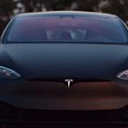As the U.S. decides the next president on November 3, 2020, another decision is brewing in the Golden State: the fate of the side hustle.
On the ballot is Proposition 22, which, if passed, will exempt ride-hailing drivers from California AB 5, the labor law that is supposed to keep employers from misidentifying employees as contractors. In a race that’s coming down to the wire, Prop 22 is a last-ditch effort for Uber and Lyft to avoid a huge and costly restructuring.
However well intentioned AB5 was expected, it’s been a legal quagmire since its inception on September 18, 2019. In fact, to ease the strain on self-identified independent contractors, Gov. Gavin Newsom recently signed a bill to exempt coaches, artists, interpreters, musicians, freelance writers, insurance field representatives, and others for AB 5.
So would the status of ride-hailing drivers still be up in the air? Probably because of the scale of the enterprise. With anywhere between 300,000 to 500,000 app-based drivers in California identifying as working for Uber, Lyft, or other service, it certainly looked like someone is working for someone — at least according to Ethan P. Schulman, Judge of the Superior Court of the State of California, County of San Francisco, who noted that “drivers’ work — the work of transporting customers for compensation — is ‘an integral part’ of those businesses.”
The ride-hailing apps say different, claiming that only a small percentage of drivers work for them full time. Even so, the legal argument between Uber and Lyft v. The State of California has looked like a desperate tug-of-war — with the App Giants slowly sliding into the mud. In the latest loss, which occurred on October 20, when an appeals court opined that must re-classify their workers within 30 days. Unless Prop 22 passes.
The one bright spot for Uber and Lyft is that 46 percent of Californians appear to support Prop 22, according to the October 26 Berkeley IGS Poll. Other proponents include the California Chamber of Commerce, the California Police Chiefs Association, the California NAACP: and Mothers Against Drunk Driving (MADD), which warned, “Fewer rideshare drivers in California could mean more people choosing to get behind the wheel when they’re under the influence, rolling back the substantial gains that have been made over the past 10 years, in part due to the growth of ridesharing.”
Many, if not all drivers, approve of the status quo. As one California Uber driver put it, “I like being a contractor. I like setting my own hours. If I was an employee, then my employer would be telling me when I had to work, and how many hours.”
Two things make Prop 22 important for Uber, Lyft, and the future. First, if the proposition fails, the rideshare giants may pull out of California. For the companies, for whom the Golden State represents a small portion of their rides, it will certainly hurt, but not as much as leaving a half-million drivers without a side hustle. Second, California is often seen as a template for court cases to come.
Stay tuned for results.
Author: Kyle Freedman is COO at Digi Car focused on building a rental platform for delivery and ride share drivers in NYC
